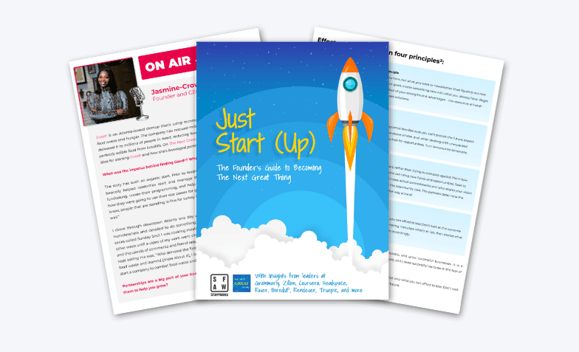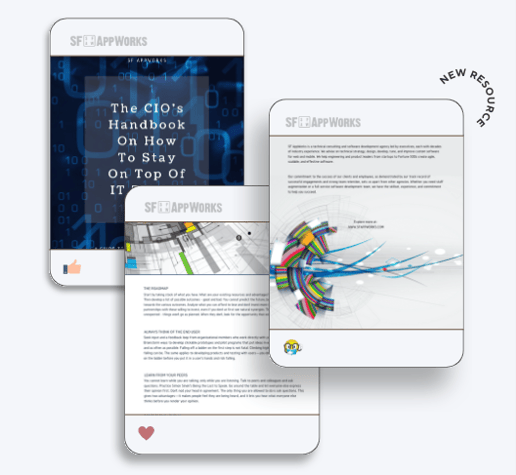In their early days, the founders of Google tried to sell their struggling business for $1 million and were turned down. Alibaba, one of the largest eCommerce companies in the world, was rejected by nearly every VC they pitched. Rakuten, the largest e-commerce company in Japan, never received any VC funding. In all three cases, an immense opportunity went unrecognized by professional, world-class investors. Similar opportunities go unrecognized every day by the entrepreneurs who chase them, and eventually give up.
Predicting the future is a fool’s errand, yet entrepreneurs, investors, and business operators, no doubt motivated by massive revenue-generating opportunities, will always try. The most successful ones, however, don’t predict the future; they make it. They evaluate the opportunities around them and, when one seems worth pursuing, they apply frameworks for product development that don’t just manage uncertainty, but leverage it. It’s an approach that we call Opportunity Shaping.
The future is neither found nor predicted, but made.

Photo via Unsplash by Matt Ridley
What is an opportunity worth pursuing?
Jeffry Timmons was a pioneer of both entrepreneurship and education. He wrote several books and published hundreds of articles on the study of entrepreneurship. Here is how he defined a good opportunity:
“A superior opportunity has the qualities of being attractive, durable, and timely, and is anchored in a product or service that creates or adds value for its buyer or end-user.”
Let’s break that down.
A superior opportunity is attractive.
An opportunity must attract the people who will execute on it AND the stakeholders who will support it. The executives need the relevant experience in the industry or market to chart and navigate the path forward. The stakeholders want to see that the opportunity has a robust market, margins, and money-making capabilities. Both will need to see an attractive risk/reward balance.
A superior opportunity is durable.
The median time it takes for a startup to exit is anywhere from 4 years (payments) to 10 years (hardware), depending on the industry. An opportunity that will disappear in a year is unlikely to give the executives and investors enough of a window to realize the returns on their investment. Durable opportunities don’t disappear overnight, often because they are difficult to capture, but that’s also the key to their successability.
A superior opportunity is timely.
An opportunity ten years ago is impossible to pursue. One ten years from now is not ready to pursue. Evan Williams started a podcast platform before he started Twitter. It failed then, but might have succeeded today.
Get A Free Copy Of The 'Just Start (Up)' eBook

Related: A Digital Transformation Roadmap Deployed in 11 Steps (2022)
A superior opportunity is grounded in a product or service that creates or adds value for its buyer or end-user.
This one is perhaps the most nuanced of qualities, but it represents the gap in what seems like a good idea and what will get traction. There is a misconception in entrepreneurship (the Field of Dreams theory) that just because you build something, users will come to use it. Most startups fail because nobody comes. They fail to close the gap between product offering and customer needs. That is why experienced entrepreneurs are obsessive about talking to and understanding their customers.
So how do entrepreneurs succeed at identifying attractive opportunities at the right time? How do they ensure they add value for their buyer? How do they make the future? Dr. Saras Sarasvathy studied these questions and interviewed 27 serial entrepreneurs to try and understand what it is that successful entrepreneurs actually do. Her work culminated in a 2001 paper about the Theory of Effectuation — probably the best theory of entrepreneurship that you’ve never heard of (even though you might follow it).
The Pilot in the Plane
![]()
Photo via Shutterstock
Traditional business management operates under a theory of causality. Causal thinkers believe that they can predict the future based on past events. If they can predict the future, they can navigate towards it. So they start with the end and then figure out the means to achieve that end.
Effectual thinkers, on the other hand, believe that the future is largely unpredictable. BUT…they believe that it can be controlled. They take stock of their means and envision a future filled with various possible ends. Because no single outcome is predetermined, they see themselves in the cockpit, piloting a set of circumstances into the most favorable outcome that they can achieve. “Given what I’m facing and what I have,” they ask, “what is my next, best step towards achieving my goals?”
In other words, they make it up as they go along. And that’s not a bad thing, but rather the key to their success. What’s more, it isn’t an inherent skill of the natural-born entrepreneur, but an approach that can be learned and practiced by anybody who wants to create their own opportunities.
Aside from the fundamental view that we can control the future through our actions, the Theory of Effectuation has four principles.
Get a Free Copy of 'CIO's Handbook On How To Stay On Top Of IT Trends'

The Bird in the Hand
The first principle in Effectuation Theory emphasizes creating something new with existing means rather than figuring out new ways to achieve given goals. Entrepreneurs begin by taking stock of their strengths and advantages — the resources at hand — and using them to create solutions. Entrepreneurs don’t wait for perfect market conditions; they just start.
The Lemonade Principle
Because the future cannot be predicted, entrepreneurs expect surprises. They remain flexible above all else and, when dealt with the unexpected, they look for opportunities. They make lemonade from the lemons.
The Crazy Quilt
Entrepreneurs negotiate with any stakeholders who are willing to make actual commitments, without worrying about opportunity cost. They believe entering into new partnerships can bring new funds and opportunities. The partners that come onboard determine the goals and direction, not the other way around.
Get a Free Copy of 'A Step-By-Step Delivery Of Custom Apps'
.png?width=379&name=custom%20apps%20delivery%20(7).png)
Affordable Loss
Entrepreneurs only invest what they can afford to lose. They don’t look at the outcome and then determine what is worth risking. Instead, they calculate what is at risk and then decide what they are willing to lose to follow a course of action. In doing so, they minimize the risk of a project. Often, in innovation, this comes down to the following frame of thought:
I can afford to run this test, so I will. If I can’t, I need to find another test or approach. In the longer term, I can afford to invest in an innovation effort for one year. I may lose that investment, or I may discover an unknown future outcome.
The View from Above

Photo via Unsplash by Photo Nic
The fundamental shift in mindset that Effectuation creates is one of optionality. Rather than maximizing returns by selecting optimal strategies, Effectuation begins with a determination of what one has and what one is willing to lose. Throughout the process, Effectuators look at their options and choose the one that provides more options. They use the very process of building the venture to attract stakeholders and uncover additional resources…and more options.
So start with what you have, risk what you can afford, be open to pleasant surprises, and look for relationships with others. Don’t wait for perfect market conditions, and don’t try to predict the future. The time is now, the future is unmade, and all that is left to do is just start. You won’t know the possible outcomes until later anyway.
.png?%20White%20Bake%20Sale%20Promotion%20Facebook%20Post%20(4).png&width=290&name=Simple%20Pink%20%26%20White%20Bake%20Sale%20Promotion%20Facebook%20Post%20(4).png?%20White%20Bake%20Sale%20Promotion%20Facebook%20Post%20(4).png)


COMMENTS